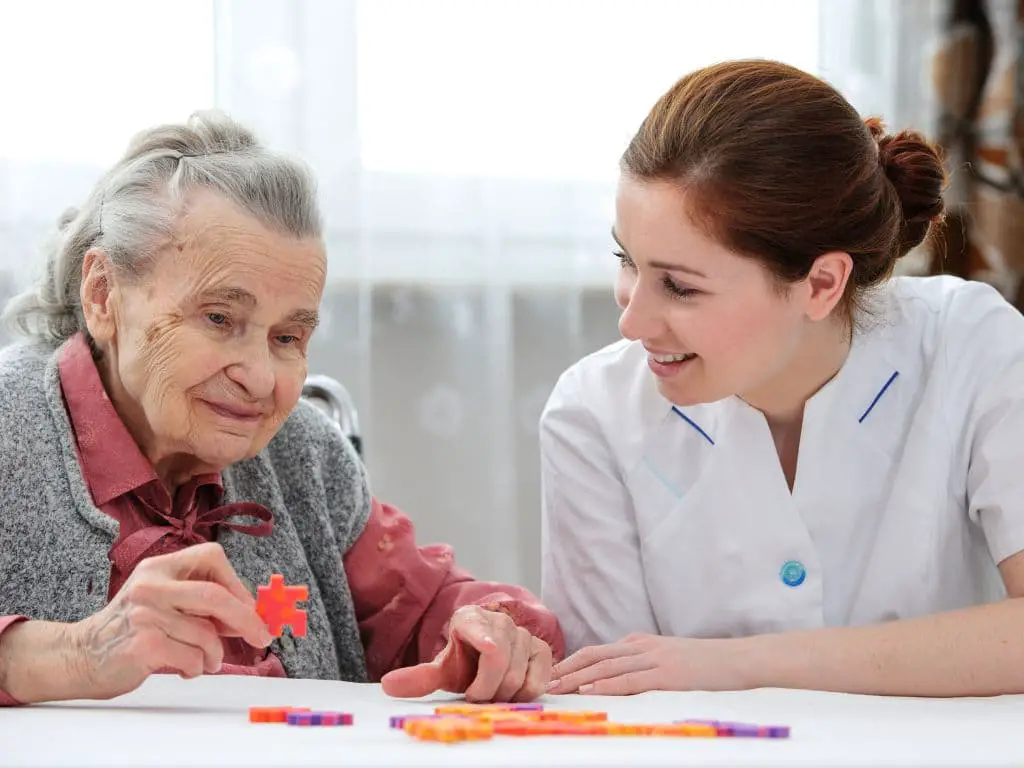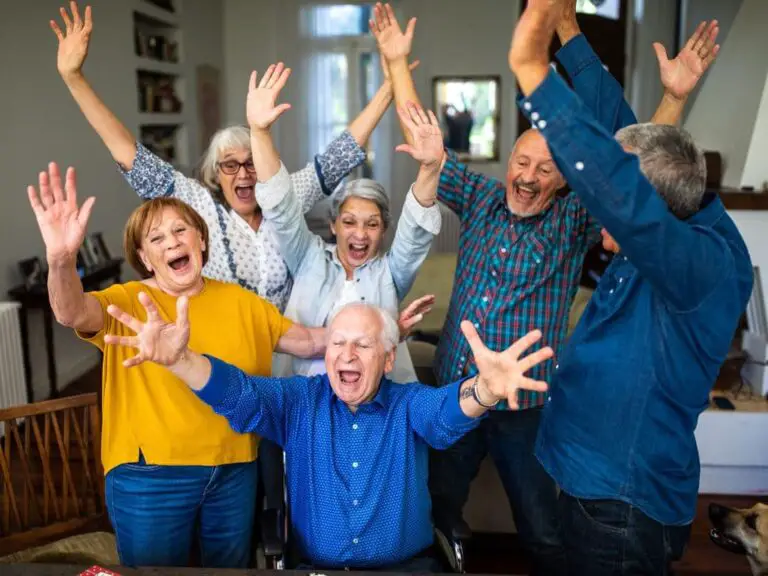What Happens if Elderly Person Has No One to Care for Them?
An elderly person with no caregivers faces numerous challenges, including physical and cognitive decline, disability, and loneliness, that can be mitigated to an extent by services like assisted living facilities, nursing homes or legal guardianship. While these options provide various levels of care, they may represent limitations to autonomy and can carry significant financial and legal implications that need to be considered.
In the absence of family caregivers, social services, government assistance, and different solutions help alleviate loneliness and isolation while ethical guidelines are essential in decisions regarding end-of-life issues and preserving the elderly individual’s best interests.

What Does Aging Mean for those with no caregivers?
The challenges that come with aging can be daunting for anyone. However, for those without a caregiver or family support system, these challenges become even more pronounced.
The challenges of aging
- Physical health decline – As we age, chronic conditions like arthritis, heart disease, diabetes become more common. Without proper care and medication management, health can deteriorate rapidly.
- Cognitive decline – Dementia and Alzheimer’s disease often accompany old age. Without familial support, cognitive impairment makes self-care very difficult.
- Disability – Age brings higher disability rates, which makes completing daily tasks harder without caregiver assistance.
- Loneliness and isolation – With limited mobility and shrinking social circles, loneliness becomes common. Feelings of isolation can take a severe mental toll.
Isolation and loneliness
Lack of social interaction and loneliness have been tied to several adverse effects on the elderly:
- Higher risk of depression – Loneliness is linked to increased depression risk in senior citizens.
- Cognitive decline – Isolation contributes to faster cognitive impairment and dementia onset.
- Physical decline – Loneliness exacerbates disability and morbidity in the elderly.
- Mortality risk – Social isolation significantly increases mortality risk in seniors.
Sadly, over a third of seniors report loneliness on a regular basis. For those without caregivers, this loneliness is often more pronounced.
The alarmingly rising depression indices among the elderly
- Over 7 million elderly Americans are affected by depression.
- Depression prevalence is higher among seniors without caregivers.
- Major depression affects 5-10% of community-dwelling elderly. This rate rises to 11-25% in elderly requiring home healthcare.
- Only 10% of depressed elderly receive adequate treatment.
Left untreated, senior depression is linked to cognitive and functional decline, greater self-neglect, chronic diseases, higher medical costs, and increased mortality.
Who is Responsible for Caring for an Elderly Person?
Providing care for an aging loved one is traditionally seen as a family responsibility. However, rising geographical dispersion of families makes this expectation unrealistic today.
The role of family in caregiving
- Family members are the primary source of elderly caregiving in most cultures. Spouses and adult children provide majority of care.
- But families are smaller now. People relocate for work frequently. So family caregiving is reducing.
- Family caregiving also impacts careers and finances of caregivers. Many cannot sustain it for long periods.
- Families work with social services or professionals to share care responsibilities.
Social services and their role
- Government and non-profit social services agencies support elderly without familial care.
- They provide services like home healthcare, food delivery, day care, assisted transportation, and social work.
- Medicaid and Medicare fund some long-term care services for low-income seniors.
- But social services cannot fully replace family caregiving due to limited funds and resources.
Government interventions and programs
- The Older Americans Act funds programs that support senior nutrition, jobs, healthcare, legal aid, and caregiver support.
- Social Security and Supplemental Security Income help provide income for older adults.
- The Elder Justice Act aims to protect seniors from abuse and scams.
- But government programs still have gaps that leave many elderly without needed assistance.
What Options Are Available to Elderly People Who Have No One to Care for Them?
Seniors without familial caregivers have options like assisted living, nursing homes, or seeking legal guardianship. Each has pros and cons.
Assisted Living
Assisted living facilities provide housing, meals, care, and supervision to elderly needing assistance with daily activities.
Residents have private living quarters and some autonomy, but staff helps with medications, bathing, dressing, meals, mobility, transportation, and recreation.
Regular monitoring ensures issues like falls are managed promptly. This allows seniors to age in place safely.
Nursing Homes
Nursing homes provide 24-hour skilled nursing care to elderly unable to live independently.
Residents get help with daily tasks, medical care, rehabilitation, nutrition management and other intensive healthcare needs.
Nursing homes have nurses, doctors and therapists on staff to assist with chronic or short-term medical needs.
They are more suitable for seniors who need frequent medical care and supervision.
Guardianship
When an elderly person cannot make sound decisions alone, the court can appoint a legal guardian to handle their affairs.
The guardian makes decisions regarding healthcare, living arrangements, finances, etc. for the senior.
While limiting autonomy, guardianship provides vital assistance when an elderly person’s mental capacity declines.
What are the Pros and Cons of Each Available Option?
| Option | Pros | Cons |
|---|---|---|
| Family Caregiving | – Emotional comfort – Preserves autonomy – Lower cost | – Burnout – Caregiver strain – Skills deficit |
| Nursing Home | – 24/7 care – Medical access – Safety | – Higher cost – Reduced autonomy – Poor social life |
| Assisted Living | – Moderate cost – Some autonomy – Social interaction | – Less medical care – Inconsistent staffing |
| Legal Guardianship | – Substitute decision making – Oversight for safety | – Total loss of autonomy – Isolation risk |
Evaluating each option: Family vs Nursing Home vs Assisted Living
For seniors without family caregivers, weighing nursing home and assisted living options involves comparing costs, medical needs and preferences for autonomy.
- Assisted living costs less than nursing homes, but provides less medical support. It offers more autonomy.
- Nursing homes provide intensive medical oversight, but reduce independence significantly.
- Evaluating health status, cost constraints, and lifestyle preferences is vital in determining the most suitable option.
Ethical considerations in making the choice
The choice between assisted living and nursing homes poses ethical dilemmas:
- Balancing autonomy and safety is complex – restrictions improve safety but reduce independence.
- Involving the senior in decision making shows respect, but cognitive decline may inhibit their capacity to decide.
- Focusing excessively on cost-efficiency ignores quality of life considerations.
- Legal guardians must act in the senior’s best interest, putting their needs first.
What are the Financial Implications of Each Option?
The costs of senior care can be prohibitive without familial or public support.
The financial hardship of ageing
- Healthcare consumes a significant portion of a senior’s limited income.
- Out-of-pocket costs for assisted living facilities, home care, medications, equipment etc. are high.
- With only Social Security and retirement funds, these costs lead to financial hardship.
Understanding financial assistance for elderly care
- Medicare covers short nursing home stays but doesn’t cover custodial long-term care.
- Medicaid pays for long-term care for financially needy seniors, but requirements are strict.
- Long-term care insurance helps cover elderly care costs if purchased early.
- Veterans benefits help pay for care services for eligible veterans.
- Area Agencies on Aging provide information on financial assistance programs.
Can an Elderly Person With No Caregiver Afford Housing and Care Options?
The high costs of assisted living make it unaffordable for many lower and middle-income seniors without familial support.
The national median cost for assisted living is $4,300 per month for a one-bedroom unit. With basic Social Security benefits at around $1,600 per month, this is unaffordable for most. Medicaid assistance is available but eligibility criteria are stringent.
Low-cost subsidized assisted living is limited and has long waitlists. Out-of-pocket costs lead to financial struggles.
Average national nursing home costs are $7,756 per month for a semi-private room. Medicaid does fully cover nursing home costs for those eligible. Financial criteria focuses on income/assets.
Low-income seniors without home equity and minimal assets can get nursing home costs covered. For those who don’t qualify for Medicaid, nursing home care is largely unaffordable.
What are the Legal Implications of Caring for an Elderly Person with no one to Care for them?
Seeking guardianship of a senior who cannot make decisions raises vital legal considerations.
The legalities around guardianship
- Guardianship removes nearly all legal rights from a senior. So the guardian’s decisions must adhere to strict standards.
- Guardians must provide adequate healthcare, safety, housing, nutrition and quality of life for the senior.
- Courts monitor guardianships to prevent financial exploitation and neglect.
- Limited guardianships that only remove specific rights can be an option.
Understanding the legal issues in a nursing home or an assisted living facility
- Signing contracts for assisted living or nursing homes carries legal implications.
- Seniors or their power of attorney should understand payment schedules, policies, residents rights.
- Nursing home admission contracts are complex with clauses about dispute resolution, liability, etc. Professional guidance is useful.
- Facilities must provide contract copies. Time and legal help to understand contracts is essential.
What Role can Social Services Play in Providing Care?
In the absence of family caregivers, social services provide vital support but cannot fill the caregiving gap completely.
Support from social services
- Social workers can connect seniors to community resources and public programs for transportation, meals, health services, and caregiver respite.
- Adult day care programs allow seniors to get daily care and socialization.
- Home health aides can assist with household chores, meals and daily tasks.
- Case management provides ongoing assessment, care planning and coordination.
Government programs for the elderly
Some beneficial federal and state programs available:
- Home and community-based services (HCBS) – for in-home care
- Older Americans Act programs – for nutrition, jobs, healthcare
- Supplemental Security Income – provides income if Social Security insufficient
- Property tax relief – for seniors based on income, assets
- Prescription assistance – helps with medication costs
- Caregiver support programs – for familial caregivers
But inadequate funding and limited coverage make relying on these programs difficult.
How Best to Mitigate the Impact of Loneliness and Isolation?
Preventing isolation is crucial for seniors without caregivers. Possible approaches include:
Exploring solutions to combat loneliness
- Enhancing social contact through visits from volunteers, social workers
- Having regular conversations over the phone
- Connecting to community senior centers for activities and companionship
- Pet therapy using visits from animals
- Music and art therapy to provide sensory stimulation
- Reminiscence therapy to spark positive memories
How to overcome isolation in the elderly.
- Encourage physical activity suitable to ability to prevent disability
- Provide accessible transportation to doctor visits, shopping, religious services
- Help build skills to use technology like video calls for social contact
- Facilitate social visits from loved ones and encourage regular family interactions
- Ensure inclusion in decision making and community activities
Conclusion: Ethical Considerations in Caring for an Elderly Person Who Has No One?
Caring for the elderly without families involves grappling with difficult ethical questions.
Care ethics and end of life issues
- Respecting autonomy vs. ensuring safety has no easy answers. Strict safety reduces independence.
- Quality of life must be prioritized along with quantity. Ethics committees can provide guidance.
- Refusing overtreatment at end-of-life is ethically acceptable with palliative care.
The ethical dilemma of decision-making for the elderly.
- Guardians must closely adhere to person-centered care principles with the elderly person’s best interests in mind.
- Limited guardianship preserves rights wherever possible.
- Advance directives provide critical guidance on care preferences when a senior cannot convey decisions.
Possible ways forward.
- Person-centered care is vital – senior’s values must guide decisions
- Ongoing consent should be sought as much as possible.
- Medical ethics boards can help guide difficult choices.
- Policy focus on funding home care prevents institutionalization.
- Public guardianship programs are needed for indigent seniors.
With rising aging populations, supporting at-risk elderly individuals without familial caregivers will require coordinated policy efforts. Person-centered care and community support systems will be vital to prevent isolation and hardship. Ongoing research on implementing ethical long-term care is essential.






